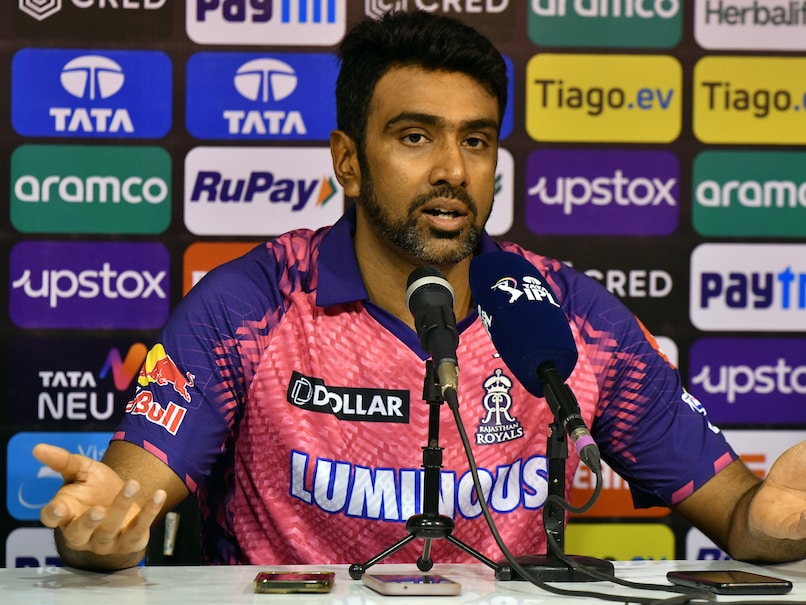


Indian cricketer Ravichandran Ashwin recently caused a stir on social media after his comments on the Hindi language during a graduation ceremony in Tamil Nadu. While addressing the audience, Ashwin stated that Hindi is not the national language but an official language of India, leading to a nationwide debate. This issue highlights the ongoing tensions surrounding the promotion and recognition of Hindi as a unifying language in a diverse nation like India.
Ravichandran Ashwin's Hindi Language Controversy
Ravichandran Ashwin, the renowned Indian cricketer, sparked a nationwide debate by his comments on the Hindi language during a graduation ceremony in Tamil Nadu. His statement that Hindi is not the national language of India, but merely an official language, reignited the ongoing tensions surrounding the promotion and recognition of Hindi as a unifying language in India.
Historical Background
Hindi has been one of the two official languages of India since the Constitution was adopted in 1950, along with English. However, there has been a long-standing dispute over whether Hindi should be the national language, with strong opposition from non-Hindi speaking states, particularly in the south.
Ashwin's Comments and Reactions
While addressing the audience at the graduation ceremony, Ashwin stated, "Hindi is not our national language. It is only one of the 22 official languages of our country." His comments drew both praise and criticism from various quarters.
Those supporting Ashwin's stance argued that it was necessary to preserve the linguistic diversity of India and that no single language should be imposed on the population. They also pointed out that the Constitution does not declare any language as the national language.
However, those opposed to Ashwin's comments condemned them as divisive and argued that Hindi should be promoted as the national language to foster unity and communication across the country. They maintained that Hindi is the most widely spoken language in India and is already used in many official documents and educational institutions.
The debate sparked a heated discussion on social media, with many expressing strong opinions on both sides.
Top 5 FAQs
Is Hindi the national language of India? No, Hindi is not the national language of India. It is one of the two official languages, along with English.
What is the constitutional status of Hindi? The Constitution of India does not declare any language as the national language. Hindi and English are the two official languages.
Why is Hindi controversial? Hindi is controversial because of its promotion as the national language by some, while others oppose this, arguing that it infringes on the rights of non-Hindi speakers.
What are the arguments in favor of making Hindi the national language? Proponents argue that Hindi is the most widely spoken language in India and is necessary for unity and communication.
What are the arguments against making Hindi the national language? Opponents argue that it would undermine the linguistic diversity of India and infringe on the rights of non-Hindi speakers.
Conclusion
Ravichandran Ashwin's comments on the Hindi language have reignited a long-standing debate on the role of Hindi in Indian society. The issue is complex and touches upon issues of identity, unity, and linguistic diversity. It remains to be seen how the government and the public will address this issue in the future.

As India celebrates 150 years of its national song ‘Vande Mataram’ today, Prime Minister Narendra Modi inaugurated a year-long commemoration with the release of a commemorative stamp and coin. Calling Vande Mataram a symbol of India’s unity, PM Modi urged citizens to draw inspiration from its timeless force. He also highlighted the impact of the 1937 decision to approve only selective stanzas of the song, which he claims sowed the seeds of India’s partition. Amidst renewed political debates, the Prime Minister urged the younger generation to understand the historical context and warned against the divisive mindset that still persists in the nation.

Former White House press secretary Karine Jean-Pierre and radio host Dean Obeidallah discuss the lack of support from Democratic Party leaders for New York City Mayor-elect Zohran Mamdani during the primaries. Jean-Pierre calls it a "big mistake" and highlights Mamdani's inspiring campaign, which resonated with young voters despite lacking party backing. She criticizes party leaders for sending the wrong message and turning their backs on a Democratic nominee.

Congress leader Rahul Gandhi has accused the BJP-led NDA of widespread voter fraud in Bihar, particularly targeting Dalit, backward class, and minority communities. He claims that hundreds of voters were removed from electoral rolls without notice, amounting to “vote theft." Gandhi also alleges that this manipulation was done to specifically target marginalized groups who may not vote for the BJP. However, the Election Commission has denied these claims and stated that the voter list is regularly updated and that there is no evidence of any large-scale manipulation.

Matheus Ferrero, a photographer from Brazil, found himself at the centre of a political storm in India after one of his photos was used by Congress leader Rahul Gandhi to allege voter fraud. The image, titled "Woman Wearing Blue Denim Jacket," had been uploaded to stock photography sites and freely available for download. As the controversy intensified, Ferrero faced online harassment and had to delete his social media accounts. He explains that the photo was a free-use image and not meant to be taken as evidence of any wrongdoing.

The Democratic Party received a major boost following Zohran Mamdani's mayoral win, with both former presidents Barack Obama and Joe Biden praising his influence and moral compass in congratulatory calls. This marks a significant endorsement from two of the party's most popular leaders, potentially indicating a shift towards embracing progressive candidates like Mamdani.

In the 2025 municipal election in Conway, voters made the choice to stick with the current city leaders. Incumbents Amanda Butler, Beth Helms, and William Goldfinch were all re-elected to their positions, while challenger Tonya Robinson fell just short. Butler, who received the most votes, expressed surprise and gratitude, and said that the re-election of all three incumbents shows confidence in the current council.

The Haryana High Court has issued a third warrant for the arrest of self-styled godman Rampal, who is facing a murder charge. With pressure mounting on the police to take action, thousands of men, women, and children who were holding a protective ring around Rampal are now abandoning their position, claiming they were forced to stay there by the godman and his supporters. This walk out is seen as a victory for the police, who are worried about potential violence from Rampal's supporters and have cut off essential resources like water, power, and food to the ashram. Rampal, who has a history of missing court hearings, is now using ill health as a reason to avoid arrest.

At a state working committee meeting of the BJP in Uttar Pradesh, Deputy Chief Minister Keshav Prasad Maurya stressed on the significance of the party organization over the government. He highlighted the need for party workers to be respected and their dignity upheld. Maurya also addressed the recent electoral setbacks faced by the BJP and stated that the organization will always remain supreme.

Acclaimed poet and Aam Aadmi Party leader Kumar Vishwas has praised Dhirendra Shastri, a prominent leader of the Sanatan Dharma movement in Uttarakhand, for his efforts in bringing enlightenment and upliftment to the people. Vishwas highlighted Shastri's dedication to preserving the values of Sanatan Dharma and spreading its message across the state. This news highlights the significance of cultural and spiritual leaders in shaping the political landscape of India.

Congress leader Rahul Gandhi has accused the Indian Election Commission of not using its de-duplication software to identify duplicate and photo-similar entries in the electoral rolls during the 2022 annual Special Summary Revision. This comes after Gandhi claimed that 25 lakh votes were "stolen" in the 2024 Haryana Assembly elections, including 5.21 lakh duplicate voters. According to sources, the software has not been used since the 2022 SSR, despite repeated directives from the EC to identify and delete such entries.